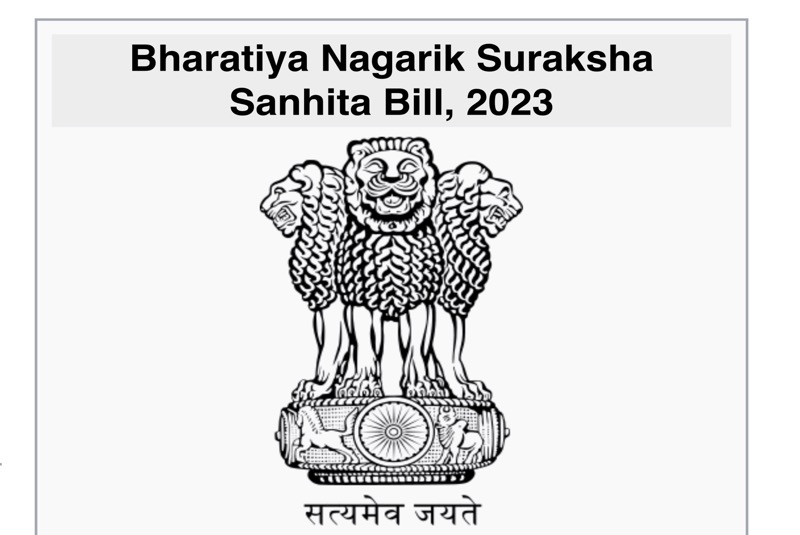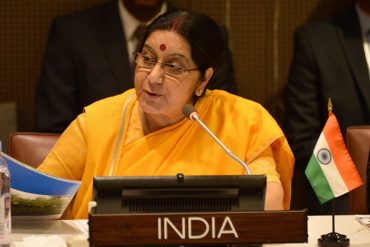In the Democracy Index compiled annually by the Economist Intelligence Unit (EIU), India continues to be classified as a ‘flawed democracy.’ Though India’s score has shown marginal improvement in the last two years, it has been steadily falling from 2014 up to 2020. The new criminal law bills, introduced in the Lok Sabha on August 11, do nothing to enhance the country’s democratic credentials.
Dressed up in the new-found nationalistic costumes as the Bharatiya Nyaya Sanhita Bill, the Bharatiya Sakshya Bill and the Bharatiya Nagarik Suraksha Sanhita Bill, these three Bills will replace the Indian Penal Code, 1860, the Indian Evidence Act, 1872 and the Criminal Procedure Code, 1973.
Introducing the bills in the Lok Sabha, Home Minister Amit Shah declared that the new laws would ‘end three colonial laws,’ thus fulfilling one of the five vows taken by Prime Minister Narendra Modi to remove all signs of slavery from the British-enacted old laws.
Legal experts who have gone through the one thousand-odd Clauses of the three bills with a fine-tooth comb have concluded that almost 80 per cent of the old laws have been retained in the new enactments. The old laws had Sections, whereas the new ones have Clauses.
The new laws are in English, though they now flaunt titles in Hindi. Thus, it would seem rather silly to claim that they have removed ‘all signs of slavery.’ If anyone imagines that the Indian public would be impressed by such sleight of hand, he would be grossly underestimating the intelligence of ordinary citizens.
Would anyone think that all previous governments and all previous Prime Ministers were less patriotic because the old laws with their English titles were retained till now, making amendments as required from time to time?
In the Constitution of India, the country is named as India, that is Bharat. The perverse politics that seeks to convert this historical equivalence to an India versus Bharat polarity is being foisted on the country in a game of one-upmanship. All of a sudden, it is made out as though India is less patriotic than Bharat.
All this could have been ignored as an insecure regime’s desperate stratagems to win the next elections if it was not for a few ominous changes brought in the new criminal laws.
Mohan Gopal, legal academic and former Director of the National Law School of India, Bengaluru, has listed twelve far-reaching changes, which ‘will result in a quantum leap in the power of the government to use criminal law, if and when it so wishes, as an effective weapon to silence dissent and opposition and shut down public discourse.’ No doubt, legal experts will continue to comment exhaustively on the implications of each proposed addition, deletion and modification made in the old laws in the coming months.
Two of the most far-reaching and potentially dangerous changes relate to terrorism and sedition.
Sedition
While introducing the bills, the Home Minister declared that his Government had taken a historic decision to repeal sedition completely. There has been widespread demand for a long time to do away with the archaic and retrograde concept of sedition from the law books.
True, Section 124A of the Indian Penal Code, which deals with sedition, does not figure in the new law. But it has been reincarnated in a new garb as Clause 150 in the new statute. Words and actions, including signs and visual representations that bring or attempt to bring into hatred or contempt or excite or attempt to excite disaffection towards the Government established by law, constituted the offence of sedition in the IPC and was punishable with imprisonment for life or with imprisonment up to three years, to which fine may be added.
In the new law, words and actions, including signs, visible representation, and electronic communication that excite or attempt to excite secession or armed rebellion or subversive activities, or encourage feelings of separatist activities or endangers sovereignty or unity and integrity of India are punishable with imprisonment for life or with imprisonment up to seven years and shall also be liable to fine.
The provision has thus been reinvented and has been made far more stringent and wide-ranging with vague and arbitrary expressions, leaving sufficient scope for subjective interpretations. It can potentially be misused for silencing democratic expressions of dissent and non-violent agitations far more ruthlessly than the old sedition law. To say that sedition has been completely repealed from criminal law is disingenuous.
The Unlawful Activities (Prevention) Act, better known as UAPA, was enacted as a special law to combat terrorism and related activities. Widely held as draconian, there has been severe criticism against the Act for its alleged misuse to silence dissenters and critics of the Government.
Terrorism
Clause 111 of the new IPC lays down that “a person is said to have committed a terrorist act if he commits any act in India or in any foreign country with the intention to threaten the unity, integrity and security of India, to intimidate the general public or a segment thereof, or to disturb public order by doing an act” in manners as enumerated in great detail.
Leaving aside the clumsy drafting of the entire provision, it considerably widens the ambit of the definition of a terrorist act. Violence or criminal force is no longer an essential ingredient to dub an act as a terrorist act. For instance, any act deemed to be done with the intention to threaten the unity, integrity and security of India, to intimidate the general public or a segment thereof, or to disturb public order would be punishable under this Clause if the Act causes extensive interference with critical infrastructure, or provokes and influences by intimidation the Government or its organisation to destabilise or destroy the political, economic, or social structures of the country, or create a public emergency or undermine public safety, even if no overt use of violence or criminal force is involved.
One can imagine how wide open the provision is for misuse. Any democratic movement seeking political, economic, or social change could be condemned as a terrorist movement under this provision.
Are the existing laws insufficient to deal with crimes like sedition and terrorism? Has not the country witnessed enough hue and cry over their alleged misuse and unnecessary ruthlessness employed in the recent past? Why should a government of the people, by the people, for the people arm itself with such drastic and sweeping powers which have a huge potential to be misused?
Shouldn’t a government sworn to protect the constitutional rights of its citizens be willing to respect people’s democratic will as expressed through popular and non-violent movements and agitations rather than use draconian powers to silence dissent? After all, changing any government is the prerogative of the people, and the next Government would be equally theirs and should be equally answerable to them.
Need for adequate scrutiny and public consultation
The Home Minister stated in the Lok Sabha that four years of intense discussions and 158 consultation meetings were held on the new laws and that 18 States, 6 Union Territories, the Supreme Court, 16 High Courts, several judicial academies, law universities and many members of parliament and state legislatures and the public have given their suggestions. Details of the views and suggestions evolved through these consultations are not available in the public domain.
The Parliamentary Standing Committee is reported to have adopted its draft report on the new criminal law Bills. It is also reported that several opposition members, including former Home Minister P Chidambaram, were expected to submit dissent notes. Now, the Parliament must discuss the laws thoroughly and decide on them. It would be a pity if the three laws constituting the cornerstone of criminal jurisprudence were passed without adequate scrutiny and wide public consultation, as the fate of most legislations has been in recent times.
The new Bills signal some positive changes reflecting the juridical response to the changing times and attitudes. These include decriminalisation of attempts to commit suicide (except when directed against public officials), homosexuality and adultery. There are welcome changes relating to gender equality, punishment for gang rape of women below 18 years of age, use of children to commit crimes, lynching, and automatic bail for first-time offenders.
The question being asked in legal and non-legal circles is whether these changes affecting about 20 per cent of the existing statutes couldn’t have been done with appropriate amendments without running the wrecking machine through them in a now familiar exercise of vanity, chest-thumping and empty rhetoric.
The devil, as they say, is in the details. Behind the maze created by this wholesale and needless recasting of the three fundamental criminal law statutes lurks the devil. A few positives in the new statutes and the confusion caused by the array of additions, modifications, renumbering, and rephrasing should not be allowed to lose sight of the ominous changes brought in the provisions relating to terrorism and sedition which are liable to be misused further to weaken civil liberties and individual freedoms in the country.
-30-
Copyright©Madras Courier, All Rights Reserved. You may share using our article tools. Please don't cut articles from madrascourier.com and redistribute by email, post to the web, mobile phone or social media.Please send in your feed back and comments to editor@madrascourier.com











